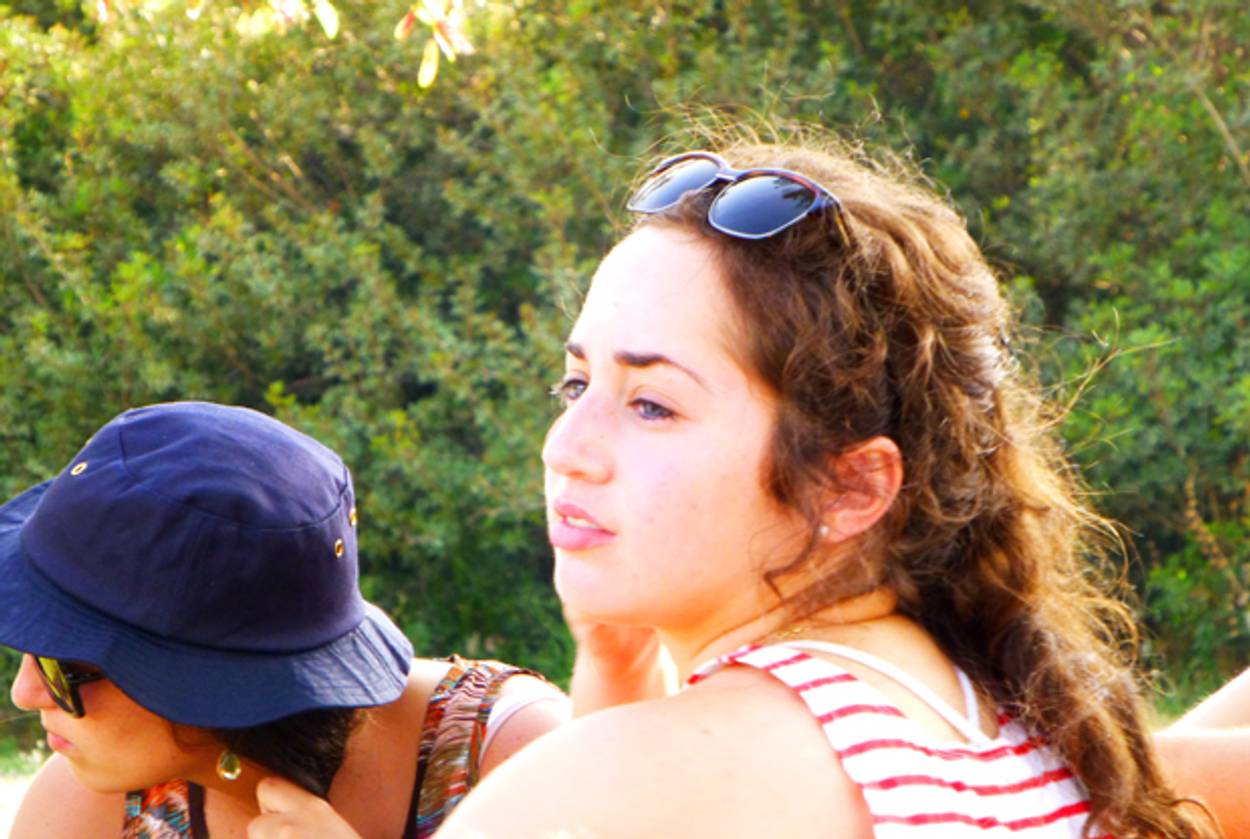Talking to a 20-Year-Old IDF Spokeswoman
The Haifa native explains why she decided to come on Birthright




At our first meeting, or mifgash, with the eight IDF soldiers who joined our group this weekend, our Birthright cohort was asked to share a set of caricatures we had drawn of the Stereotypical Israeli Soldier. Unsurprisingly, they had each also been asked to draw a caricature…of the Stereotypical Birthright Participant.
Our crude but only lightly offensive drawings—think heaving breasts, big muscles, and a tendency to shoot anything that moves—beg an obvious question: What do we want from one another? These soldiers offer a diverse set of interests, backgrounds, and conflicting opinions, but they also give us a glimpse of how Birthright looks from the other side. Why would a young Israeli want an opportunity to spend a week with a set of privileged, historically ignorant adolescents from across the globe?
The Haifa-born Adar—named for the month in the Jewish calendar in which she was born—sat down with me in the lobby of Jerusalem’s Park Hotel for a quick chat, and some initial perspective. Though otherwise confident and self-possessed, Adar apologized (unnecessarily) for her imperfect command of English. She is 20, which gives her seven months until her release from the army. She has read all the Twilight and Harry Potter novels.
What do you do in the IDF?
I’m a spokesperson. My particular job is to be in the situation room, taking care of everything in operations. If a reporter asks us about IAF (Israel Air Force) targeting in the Gaza Strip, or things that are going on in the West Bank, I check with the Army what happened, and give a comment.
You speak directly to journalists?
Yes.
How did you hear about Birthright?
It’s very common in my unit to go to this program. I think it’s because a lot of us can speak English. It’s a very, very good experience. We all want to do it. We often talk about it between us. It’s something we want to do. It’s very meaningful for us.
Does that make the process of qualifying for Birthright very competitive?
We have an oral test in English. They ask us a bunch of questions. We have a list of questions about our selves, our habits, our lives outside the army, our hobbies, things like that. And they decide whether or not you can go on Birthright.
Why did you want to do it?
I feel really connected with Jews in North America. I have family in Maryland and Virginia, and have been there three times. I feel obligated to know this community. They are a very big influence on us, and we are a very big influence on the Jewish community in the U.S.
Two of the soldiers I spoke to had never left Israel before, or met many Americans.
Yes, for them it’s more of a cultural experience.
What do you want to do after the IDF?
I want to learn in university. I think I want to go into medicine.
Any desire to live outside of Israel?
Maybe for a brief period. I’m thinking about working in an Embassy, as a job between the army and university.
Akiva Gottlieb is a writer living in Ann Arbor, Mich.
Akiva Gottlieb is a writer living in Ann Arbor, Mich.